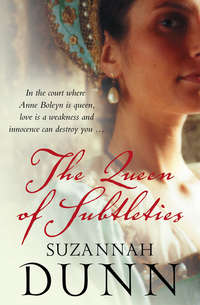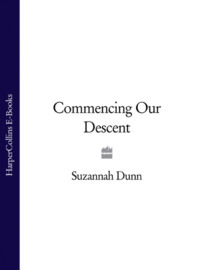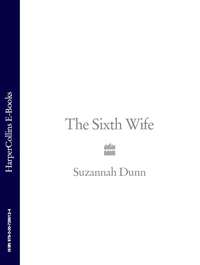
Полная версия
The Confession of Katherine Howard
Nothing in how the duchess addressed me was enlightening on the matter. She’d followed her steward; I hadn’t known whether to expect personal word from her but suddenly there she was, stepping from behind rotund Mr Scully to express polite concern for my welfare after the journey. I’d know now to describe her as a handsome woman: lean, with strong features, the most striking being her bird-black eyes. At the time, her silvered hair had me thinking of her as old; in fact, she probably wasn’t even fifty. Wiry and brisk, she wore a gown of serviceable fustian and her fingers were stained with berry-juice. Presumably she’d come from the kitchen or still-room.
The girls were a further surprise: I would never have guessed them to be my companions if they hadn’t been introduced as such, on their way into supper. I’d been anticipating composed, exquisitely dressed young ladies; but these were wide-eyed girls in barely passable worsted. Alice, Dottie and Mary were about my own age and Maggie looked to be a couple of years younger. To my relief, no distinction was made as to whom was related to the duchess, and all four were ushered to places on the high table, as was I.
Supper was plain fare - bird pie - which was welcome after the ride, and, as soon as we’d finished, the steward’s wife - dumpy and smiley like her husband, but much younger - asked the girls to show me to their bedroom, waving us off with her babe-in-arm snatching at her coif. On the way across the courtyard to the staircase, the girls buzzed around me, full of questions. Their concerns were my horse at home — her name, her temperament — and whether I had brothers and sisters, and what was the latest I’d ever stayed up. I’d been anticipating serious-minded young ladies with firm marriage plans in place, ladies about to step up into their future lives; and me joining the ranks, the back of the queue, falling into line and following in their footsteps. Instead, there was Dottie telling me that Alice had been unwell and had an invalid’s licence allowing her to eat meat on fish days and fast days, and Alice raising her eyebrows in acknowledgement of her good fortune. That, it seemed, counted as the big news around here.
And that I didn’t mind, but when I saw the bedroom, it was all too much - or, rather, too little. My bed at home was cosy inside hangings, deep with covers and cushions, but here were five straw mattresses on the floor, each bearing a single blanket. Moreover, the suspiciously clean fireplace was clearly seldom - if ever - lit, and skimpy bolts of ox-blood-coloured fabric failed to hide bare-plastered walls. Detecting my disappointment, Dottie asked, ‘What is it? What’s the matter?’ Ashamed of myself, I couldn’t quite say, and merely gestured at the room. Dutifully, her big brown eyes followed my hand, but - I saw - she just couldn’t see it, the drabness. Confounded, she tried to reassure me with, ‘But we’re all in here together,’ and, giving me my first glimpse of that lovely, guileless smile of hers, ‘It’s great, you wait and see.’
My first full day at the duchess’s began no differently from how my days began at home: prayers at six. No Mrs Kent, now, though, to get me dressed. Harried by the tolling bell, we girls fumbled with one another’s pins and ribbons, Mary complaining vociferously that no one was helping her enough or not fast enough, then scrunching her hair up under her hood with the furious admission that she’d just have to plait it later. By the time we arrived at the duchess’s closet, the lady herself was already kneeling at the little altar. I’d soon learn that she was always well into her day before the opening of the house gates at five. After prayers came the basic household tasks - the emptying of chamberpots, and the sweeping of our own room and the Scullys’, the duchess’s bedchamber and her day room, the long gallery and Hall. Everywhere in the house bloomed the heady fragrance of baking bread. It was a bake day but not a Mass day, so, after a breakfast of rolls and cheese fetched to our room by Alice, we were to go to the duchess’s day room for some tutoring by Mrs Scully. She despatched her stepdaughter, Trudie - a scrappy, nine-year-old redhead - to take care of her various babies (I’d counted four, so far) before giving us a passage from Aesop’s Fables to copy. My companions began on it laboriously, each individual letter a challenge, but I plucked up courage to whisper to Mrs Scully that I already knew how to write and to ask if I could perhaps write a letter home, a request which was gladly granted. I settled to it for an hour - but then that was it, apparently, for schoolwork, for the day. No reading, no translation, no maths, no music.
What there was, instead, was dancing tuition from a well-dressed girl who sauntered into the room on the stroke of nine and introduced herself to me as Polly. She’d not been at supper the previous afternoon, she said, because she’d been locked in her room for being naughty. When everyone else laughed, I realised she was joking. ‘Kidding,’ she confirmed: ‘Headache.’ Clearing a little dance floor by kicking aside the rushes, she informed me that in the duke’s Norfolk home the rushes were scented with saffron - ‘Nice touch’ - and explained that that was where she’d lived until the previous year: she’d been a Howard ward since the age of seven, and she was now sixteen. I wondered why she’d been moved at this late stage to the duchess’s. Possibly for exactly this, though: to teach the duchess’s girls to dance. It would have to be done, but the duchess wouldn’t have danced for decades and Mrs Scully - a housekeeper, not a noblewoman - would never have learned the finer points. Polly, though, seemed very much in the know. I wondered why she was still unmarried. She’d have been a considerable catch for her quick wits and prettiness - wide-spaced eyes, snub nose and full lips - let alone for the prized Howard connection. Most likely the duke was holding out for the best price; perhaps he was in the very process of driving a hard bargain and that was why she’d been sent to the duchess, safely out of the way while her future was decided, tantalisingly beyond the reach of whoever was bidding for her. During the hour before dinner, she put us through our paces, clapping rhythms and bellowing instructions, unstinting in her enthusiasm, laughing good-naturedly at our ineptitude, until we were flushed and exhilarated and Mary had slipped over and had had to be sat to the side on cushions and wrapped in a blanket.
Afternoons at the duchess’s were mainly given over to sewing, again under Mrs Scully’s supervision but with the added good company of cheerful, know-all Polly. The duchess’s was a big household so there was a mound of patching and darning to be tackled, lots of buttons and hooks-and-eyes to be re-attached, all to be rushed through, which was a relief because I’ve never been anything but poor with a needle. During these sessions, we gossiped. Dottie’s sister was due to be married, that autumn, so, for those first afternoons of mine, the talk was of the match and the eagerly anticipated celebrations. Occasionally we’d be interrupted by Trudie and the trio of household pages with the more mobile of the Scully toddlers in tow, but they’d be sent back soon enough to the gallery or gardens.
After the daily load of repairs, we moved on to more challenging needlework, supposedly of better quality and intended by Mrs Scully to be improving for us. I’d come with something that I’d been working on: a little bag for dried lavender which I was stitching, slowly and badly, with a simple, repeating lavender-head design in blackwork. Luckily, no one even so much as glanced at it. Mrs Scully and Polly were working together on a superb altar cloth, and of my companions some were better at embroidery than others. Alice, working on a pair of sleeves, was unadventurous with her geometric pattern, but neat. Mary was stitching a whitework feather pattern on to a coif and was bitterly vocal on the subject of her own perceived shortcomings, which kept Mrs Scully and Polly busy issuing reassurances. Dottie was mired in a complicatedly florid cushion cover, but her frequent declarations of helplessness - ‘Oh, I just can’t do this!’ - gave the impression that being unable to do it made it all the more fun. Maggie loved to tidy up the sewing box of silks and needles, and Mrs Scully left her to it.
Every few days, Mrs Scully would remember that we should practise the lute and virginals and then there would be an afternoon of music. What we very rarely did was ride. My own horse had gone back home with Mrs Kent but I’d assumed that the duchess would have extensive stables. Hers was a thrifty household, though, and she didn’t travel - never going to court because, Mrs Scully cheerfully said, ‘She has no time for all that nonsense’ - and disapproved of girls riding to hunt. The only way we ever had venison on the table, unless it came as a gift, was if servants went into the parkland and drove the deer into nets. Except for gifts, I’d soon learn, we had no fresh meat at all in winter - only salted - because, to save the cost of winter feed, the household followed the old tradition of the annual Martinmas slaughter. Indeed, most of the few horses that the duchess did own were released into the woods to fend for themselves in winter, the survivors re-captured in the spring.
The duchess spent her days busy either with household business - consulting with her secretary and steward, her caterer and the cooks - or spiritual matters with a bevy of chaplains. Sometimes there were visits from her stepson - the small, wily-looking duke, who was actually older than her - or her own two sons, one of whom had a lot of her in how he swung himself down from his horse and strode smiling into Hall, but the other pallid and pained-looking. Whenever the duchess came across us, we had to curtsey, which I loved to do, having the notion that I curtseyed particularly well. Most days, she took a couple of us with her into her meetings with senior household staff so that we’d learn about purchasing and menu-planning. She’d also take one of us on visits to those on the estate who were sick or in need, delivering them firewood, milk and bread, eggs and perhaps a hunk of cheese, perhaps some cast-off clothing and her famous tonic of breadcrumbs and rose-water. I savoured those rare opportunities for a ride.
Dottie was probably my favourite of the girls: shy, spindly and sparkly-eyed Dottie with her silk-scarf rosy-brown hair. Alice was the opposite - matronly and taciturn - but she was dependable. Mary, unfortunately, was hard work: so nearly appealing, bouncy and rosy-cheeked, keen to please and quick to laugh but, unfortunately, quicker to cry, easily riled and noisily aggrieved, perpetually on the crest of indignation. Maggie was a joy, the smallest of us but the biggest character. I loved her sometimes comical efforts to keep up with us, and anyway I only had to look at her to laugh: that unruly black hair, thick and wiry, growing outwards rather than down.
Yet for all it was wonderful to have companions, I was unused to it. It was a surprise, to me, how much solitude I could find for myself in that big, busy household, and how much - despite my newfound love of company - I still wanted it. It was there for the taking and I got better at finding it and bolder at taking it. The best times for going alone were just before or just after supper: two of the busiest times but coming when everyone’s energy was running low, and so there was a slipping and sliding, the household unravelling a little, a hint of abandon in the air and, later, a resignation. A lurching and drifting towards nightfall. A good a time as any for cutting loose.
I’d cross the drawbridge and head for the gardens. That first autumn of mine at the duchess’s was wonderful, a St Luke’s Little Summer. Crusty sea-green lavender heads bobbed under burly bees, and everywhere was strung with barely visible spider webs of improbable spans, individual threads turned into tiny lightning bolts by the low sun. The air was somehow always cooler than I’d anticipated, like water, and moving through it gave me the pleasurable sensation of being dowsed. High above me and above the indignant rooks, birdsong tweaked at the sky as if pulling it flat in readiness for lowering it down, and dusk rose around me as rich as woodsmoke. Secluded at the far end of the flower garden was a banqueting house where, in the grand old days, favoured guests would have retreated after feasts for confectionery and spiced wine. It had long since fallen into disrepair, and my friends avoided it. I, though, found myself drawn to it. Its oak pillars and posts - now woodbine-clogged and fringed with tatty blossoms - were carved with sprightly little fleur-de-lys, sinuous vines and bold bunches of grapes; it had once been really quite something. It was even glazed, and, sometimes, having eased open the door and braved the cloth-like webs to climb the ladder-staircase, I’d peer through those sea-green diamonds of glass at the duchess’s house: buildings that, despite their decrepitude, didn’t look in any danger of falling down, not least because there was nowhere much further to fall. I used to fantasise that over the years I’d furnish that banqueting house with a cosy bed and carpets and no one would know. It’d be for me alone and I felt something of a princess, I suppose, to have even the faintest possibility of it.
Evenings were nothing much at the duchess’s. Apart from on the eve of an important feast day and then on the day itself, she eschewed the dancing and masques that were popular in most noble households and instead we had to be content with card and board games in the company of Polly and Mrs Scully and whichever Scully-children had yet to be put to bed. Later, though, in the privacy of our own room, gazing up at roofbeams barely visible in the glow of the solitary wick, and ignoring Mary’s snores (mercifully, she fell asleep as soon as her head went down), the rest of us talked about boys. We discussed our future husbands: what we hoped they’d be like and what our lives with them might be like. It was as if we imagined those husbands - whoever they were - waiting patiently for us; as if, by having to take our time to grow up, we were inadvertently keeping them waiting. My mother might not have despaired, because there was nothing silly in our talk. We were careful to speak respectfully of those men: it was a serious undertaking even to speak of them, these men to whose selection our parents would give so much consideration. There was nothing resigned in our attitude towards the marriages for which we were heading. We had expectations of which we spoke spiritedly understanding ourselves to be taking them along with us into the future - if not meeting our spouses halfway, then at least part of the way.
We all pitied Mary’s future husband.
We didn’t only talk, at bedtime: sometimes we sang. Or Dottie, Maggie and I did; Alice was no singer, she maintained a dignified silence. Dottie, Maggie and I sang love songs that we’d filched from the adult world and which we didn’t fully understand, but we’d picked up threads from visiting musicians and from Polly and managed to make something of them, something that captivated us. In our bedroom and also sometimes when we were left alone in the gallery, in the gardens or the stillhouse, we offered up these little incantations - even Mary, sometimes, welcoming the opportunity to make a noise - as if trying to summon futures for ourselves.
Despite the talk of whom our parents would choose for us, we didn’t shy away from speculating which boys in the household or neighbourhood we’d marry if by some chance we had the choice. Harmless, this talk, and liberating: a choice unburdened by the various considerations which, we knew, our parents had to take into account. Liberating, but never frivolous: we relished the choice that in fact we would never have, and chose carefully. Careful, as well, to avoid any conflict between one another. By negotiation, we parcelled out the better of the boys in the household and the neighbourhood: the trio of pages, and the sons of the higher-status members and retainers of the duchess’s household such as her secretary and doctor. Not so much a choice, then, perhaps, as an allocation. Mine, that first autumn and winter, was the doctor’s second son, fourteen-year-old Rufus: a watchful lad, by all accounts a clever boy. We kept our boys to ourselves and even they themselves - especially them — knew nothing of our interest in them.
We didn’t idolise them. Our attitude to them was one of tolerance - as if they were merely, in some way, necessary. We took an interest in them, but there was no passion. What was important to us was the act of choosing. Looking back, I’m struck that our attitude to them was rather superior. In my daydreams, Rufus would be struck down, it didn’t matter how, it mattered only that he was in desperate need and that I, grave and efficient, worked wonders. I found, in my daydreams, that I had a talent for it.
Bright-button-eyed Dottie had been right, that very first night: It’s great, you wait and see. The only problem was that, in so enjoying myself, I couldn’t shake a suspicion that I was betraying my mother: my mother, by whose very best efforts I was there at the duchess’s. It wasn’t only the talk of boys of which she would’ve disapproved, or the lack of schooling. Worse than that: she’d drummed into me that I’d have to be on my best behaviour at the duchess’s, but to my surprise, I realised that it was at home that I’d been on my best behaviour. Both of us - my mother and me - had been forever on our best behaviour, whereas life in the duchess’s household wasn’t the ceremonial business that she’d believed it would be. At the duchess’s, I was free of all that: I was free and every day was one long sigh of relief freighted with the shame of my disloyalty. However happy I was, I lived day by day with a catch in my breath, a lump in my throat, a hitch to my heartbeat: the sense that I was getting away with something and the day would come when I’d have to answer for it.
Katherine Howard arrived at the duchess’s six months after I did, on the eve of Lady’s Day. That first evening, she said very little; just regarded us all with that gaze of hers, that half-smile, answering our questions which, from shyness, were limited to practical considerations. Only Mary was more personal - ‘Are your parents alive?’ - but was answered at first less readily and then rarely, Katherine giving an impression of being unable to hear while she unpacked her chest and her bags. When we woke in the morning, Katherine’s mattress lay square on to the wall in our higgledy-piggledy room and, shutting the door behind us, glancing back, I saw that it was our five that looked out of place.
Her first morning, she showed a similar effortless efficiency in the day room, copying letters as if it were nothing and gazing into space while waiting for the others to catch up. Mrs Scully was full of praise for her - ‘Very good, Katherine!’ - which rather dismayed me because it was only copying, after all, and she showed no signs of actually being able to write. When Mrs Scully left the room at the end of the lesson, Katherine remarked expressionlessly and to no one in particular, ‘What do you think she was thinking when she put that dress on this morning? “Oh, this blue’ll look good”?’
It’d been phrased as a question, but I knew full well that no actual response was required. Or none that wasn’t in accord. The new girl’s opinion was that the colour of Mrs Scully’s dress was wrong and Mrs Scully should not only have known it but also cared.
Infuriatingly, ever-eager Dottie rushed in with an excuse: ‘Not much else fits her -’ as if Mrs Scully had lots of dresses from which to choose - ‘because she’s expecting again.’
‘Yes.’ Katherine bit a nail, then examined it. ‘I can see she’s been busy.’
Busy?
At that, Alice almost caught my eye but seemed to think better of it. I didn’t like it that this new girl - or anyone, but especially this blank-faced, glittery-eyed new girl - should be passing comment on Mrs Scully. What was wrong with blue, anyway? True, it was more often the colour of servants’ livery, and, true, it was more often worn by men than by women, but so what? What did it matter? The duchess’s wasn’t a fashionable household, and Mrs Scully was a busy countrywoman distracted by children.
More to the point, who was this girl to judge? From what I’d seen of her own clothes, they were plain and well used, handed down, even if she wore them as if they were something special, with cuffs turned back, buttons unfastened. In fact, she was plain herself, not that you’d know it from the way she walked around with that glittering half-smile. She walked tall despite her lack of stature. Purposefully, too, her pace measured. Like an adult. None of our scampering or dawdling. She was thin-lipped and big-nosed; her eyes were small and grey, her hair not Tudorgold but bronze. She wasn’t a patch on any of us, I didn’t think, with perhaps - if I was honest - the exception of double-chinned Alice. This colourless little new girl was nothing special but she acted as if she were. Polly would’ve put her in her place but she’d gone, having left us at Christmas to be married.
Later that morning, on our way into Hall for dinner, the new girl’s eyes trailed the imposing figure of Mr Wolfe, the caterer, and - again - to no one in particular, matter-of-fact, she remarked, ‘That one looks a lot like one of my sister’s ex-lovers.’ This time, no one responded. Little Maggie bit her lip. That one was a disturbingly casual way to refer to Mr Wolfe, who held considerable respect in the household. And lover? Not a word we used, probably not a word we’d ever heard. Ex-, too, which made clear that there’d been others. And, anyway, even to think of our respectable - indeed, married - Mr Wolfe in that way…
When we were leaving Hall, though, and passed Jay-jay, one of the page boys, just as he spat copiously on to the cobblestones, Katherine muttered, ‘You’re nice,’ for us to hear but for him to fail to catch, and it was this snipe of hers - pointless but pointed - that had us smiling among ourselves. The page boys were a wily trio and we’d never have admitted it but we were in awe of them, so it was good, for once, to feel superior.
Sewing, that afternoon, Katherine had barely clapped eyes on Mrs Scully’s stepdaughter before coming up with ‘Oddbod’, and nothing could’ve been more apt. Skin and bone, with birthmark-red hair and venous-blue eyes, Trudie was a girl of sudden revelations: a moth from the palm of her hand, a milk-tooth dredged from her pocket, a shrew’s skeleton shrouded in her handkerchief. ‘Oddbod,’ decreed Katherine, her tone neutral, just as it was safe to do so, just as Trudie flitted away over the threshold ahead of her stepmother, and in that instant, it was done: Trudie became - affectionately, and only among us - Oddbod. As for Mrs Scully herself: later that afternoon, having asked us to fetch cheeses for the Lady’s Day supper and rushing into the dairy to supervise us, she slipped but managed to correct it before it had properly happened, perhaps even before she’d consciously registered it. Respectfully averting my gaze, I came up against Katherine’s, which showed no such compunction. That evening, Katherine relayed a message to me with, ‘“Skid” Scully’s asking for you,’ and by bedtime, Mrs Scully was, to all of us, without discussion, as if she had never been anything else, simply ‘Skid’.
Despite myself, I began listening for Katherine’s asides, anticipating them. We all did. Desultory though they were, they drew us in, they drew us to her in our efforts to catch them. I don’t think it had ever occurred to us to pass judgement on anyone, but in the new girl’s eyes everyone was fair game. I saw how adults took the light in those eyes as evidence of keenness and interest. Little did they know she was on the lookout, and that the smallest detail was up for comment: for speculation, or dismissal, or ridicule. The smaller, the better: the bigger the prize. People’s appearance, their behaviour, their relationships, and what she saw - accurately - as their pretensions. Sometimes she was cutting, unkind, petty; sometimes, droll; often intriguing. Of the duchess’s maid, Mrs Barber: She needs one, and a single tap of a fingertip to her top lip (which, later, had me surreptitiously and anxiously dabbing my fingertip to my own). Of Mr Wolfe and his wife: No love lost there, bet the last time they did it was their wedding night. Did what? Danced together? Of the bad-tempered farrier’s wife, sometimes: Probably due her monthly. Monthly what? Confession? Of our chaplains, whispered in their wake: a flat-eyed, derisory, God loves you, Fathers, for which, I worried, we’d all be struck down.






